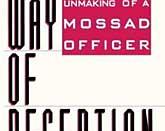UNDERSTANDING DECEPTIVE MESSAGES IN VERBAL DISCOURSE
Conor L. Murphy
University of Portland
This study serves to attain a better understanding of deception types and the nature of verbal manipulation. In this report analysis of various research was used to come to a consensus on the different types of verbal deception and how they affect apparent message competence and manipulative qualities. Analysis confirms that the Information Manipulation Theory is the best indicator of deception types in Western Discourse. Through careful evaluation, evidence seems to suggest that manipulations of quality, quantity, relation, and manner all significantly influence perceived message competence and deceptiveness. The violation of quality was found to be the most deceptive.
Two major avenues of study have risen in deception research. One looks at a persons ability to detect deceptive messages. The other inquires what makes up a deceptive message. While this article touches on both, it focuses on the latter issue.
When looking at types of message deceit, this study sought to find what types of messages are involved in manipulation and what types of are perceived as being the most manipulative. Manipulation in communication is defined as messages intended to mislead receivers. When examining manipulation in communication a guideline must be created to label the different types of deception. This essay will examine different manipulation literature and come to a consensus on what verbal communication manipulation entails.
The Co-operative Principal
This article presupposes Paul H. Grice's Co-operative principal when examining manipulation. Understanding of western speech and dissertation, including the Information Manipulation Theory, is based off the guidelines of discourse set forth by Grice. He projected a set of broad assumptions to which all conversationalists must follow in order to be perceived as proficient. His basic assumption was that any discourse, whether written or spoken, is a joint...


